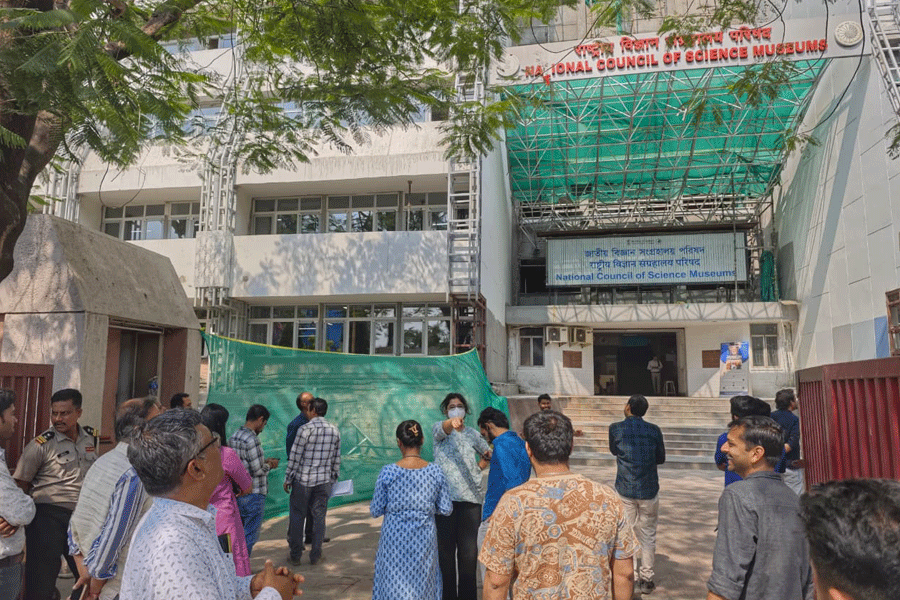 |
| A parent explains the autistic behaviour of her child at a workshop organised by Deepshikha in Ranchi. Picture by Prashant Mitra |
Ranchi, March 14: If you think your child is not behaving properly or does not communicate with people, perhaps it is time to consult a doctor. Instead of branding the child as naughty, take him to experts and get him treated for “autistic behaviour”.
These were the refrains of experts in a programme on autism spectrum disorder organised by Deepshikha and National Trust today.
According to experts, autism is a condition characterised by self-absorption that makes a person severely incapacitated. It cannot be cured but only managed. People suffering from autism are not physically disabled and appear to be normal from outside. It is also more common in boys than in girls.
“Due to the obscure nature of the problem, it is very hard for people to understand the disorder. Even parents find it difficult to accept that their child is autistic and think that he/she is being purposely naughty,” said Sumita Sinha, a Deepshikha faculty member.
While explaining autistic behaviour, Pramod, another Deepshikha faculty, said most doctors, being unaware of the exact symptoms of an autistic child, fail to diagnose it properly.
“Doctors do not understand the problems of a child and mistake autism to be a psychotic behavioural disorder. The entire line of medication and treatment prescribed by such a doctor may not be of any use to the child,” said Pramod.
Parents of autistic children also attended the workshop and shared their experiences with the other participants. They said their children showed poor communicative skills and did not mix freely with other children of their age.
“We went to different doctors but no one could identify the problem. Finally, we realised that our child suffers from autistic disorder and its treatment is different from other medical ailments,” said a parent.
Mita Paul, a paediatric nephrologist attending the workshop, said autistic children exhibit certain symptoms like poor socialisation skills. They find it hard to relate with other people and fail to make proper eye contact during a conversation.
“I have come across some children who suffer from autistic disorder and have recommended them to undergo a training module taught in Deepshikha,” said Paul.
Many doctors, social workers and representatives of NGOs participated in the workshop. Participants said autistic children need special care and attention because autism is not a disease but a condition.
“Autism is often referred to as a spectrum disorder as the symptoms can present themselves in a variety of mild and severe combinations,” said Sudha Lhila, the executive director of Deepshikha.











